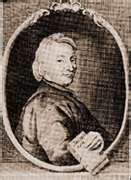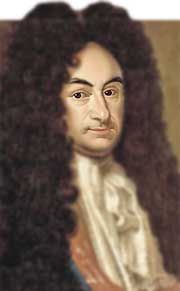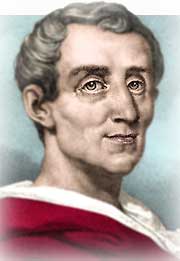John Toland
Filósofo irlandés
John Toland nació el 30 de noviembre de 1670 en Ardagh, en la península de Inishowen, condado de Donegal, Irlanda, que actualmente forma parte de la República de Irlanda.
Criado en la fe católica, se convirtió al protestantismo a los 16 años.
Tras realizar estudios universitarios (1687-1695), se estableció en Inglaterra y atrajo la atención pública con su obra Cristianismo no misterioso (1696).
En este trabajo sostenía que tanto Dios como su revelación eran accesibles a la razón humana y que los misterios del cristianismo eran el resultado de manipulaciones clericales.
Tras el escándalo, dejó Inglaterra para establecerse en Irlanda, donde el Parlamento prohibió su libro. Posteriormente regresó a Inglaterra.
La publicación de su obra Vida de Milton (1698) incrementó la oposición pública contra él, debido a que en un pasaje parecía cuestionar la autenticidad del Nuevo Testamento.
Se cree que acuñó el término panteísmo para designar la teoría de que Dios y el universo son idénticos.
John Toland falleció en Londres el 11 de marzo de 1722.
Obras
Christianity Not Mysterious: A Treatise Shewing, That there is nothing in the Gospel Contrary to Reason, Nor Above It: And that no Christian Doctrine can be properly called A Mystery (1696)
An Apology for Mr. Toland (1697)
Amyntor, or the defence of Milton's life (1698)
Amyntor, or a Defence of Miltons Life (1699)
The Art of Governing Partys (1701)
Limitations for the next Foreign Successor, or A New Saxon Race: Debated in a Conference betwixt Two Gentlemen; Sent in a Letter to a Member of Parliament (1701)
Propositions for Uniting the Two East India Companies (1701)
Hypatia or the History of a most beautiful, most virtuous, most learned and in every way accomplished lady, who was torn to pieces by the clergy of Alexandria to gratify the pride, emulation and cruelty of the archbishop commonly but undeservedly titled St Cyril (1720)
Anglia Libera, or the Limitation and Succession of the Crown of England (1701)
Reasons for Address His Majesty to Invite into England their Highnesses, the Electress Dowager and the Electoral Prince of Hanover (1702)
Vindicius Liberius (1702)
Letters to Serena (1704)
The Primitive Constitution of the Christian Church (c. 1705; publicado póstumamente en 1726)
The Account of the Courts of Prussia and Hanover (1705)
Socinianism Truly Stated (por "un panteísta") (1705)
Adeisidaemon - o "Man Without Superstition" (1709)
Origines Judaicae (1709)
The Art of Restoring (1710)
The Jacobitism, Perjury, and Popery of High-Church Priests (1710)
An Appeal to Honest People against Wicked Priests (1713)
Dunkirk or Dover (1713)
The Art of Restoring (1714)
Reasons for Naturalising the Jews in Great Britain and Ireland on the same foot with all *Other Nations (1714)
State Anatomy of Great Britain (1717)
The Second Part of the State Anatomy (1717)
Nazarenus, or Jewish, Gentile and Mahometan Christianity (1718)
The Probability of the Speedy and Final Destruction of the Pope (1718)
Tetradymus (1720)
Pantheisticon (1720)
History of the Celtic Religion and Learning Containing an Account of the Druids (1726)
A Collection of Several Pieces of Mr John Toland, ed. P. Des Maizeaux, 2 vols. (1726)



